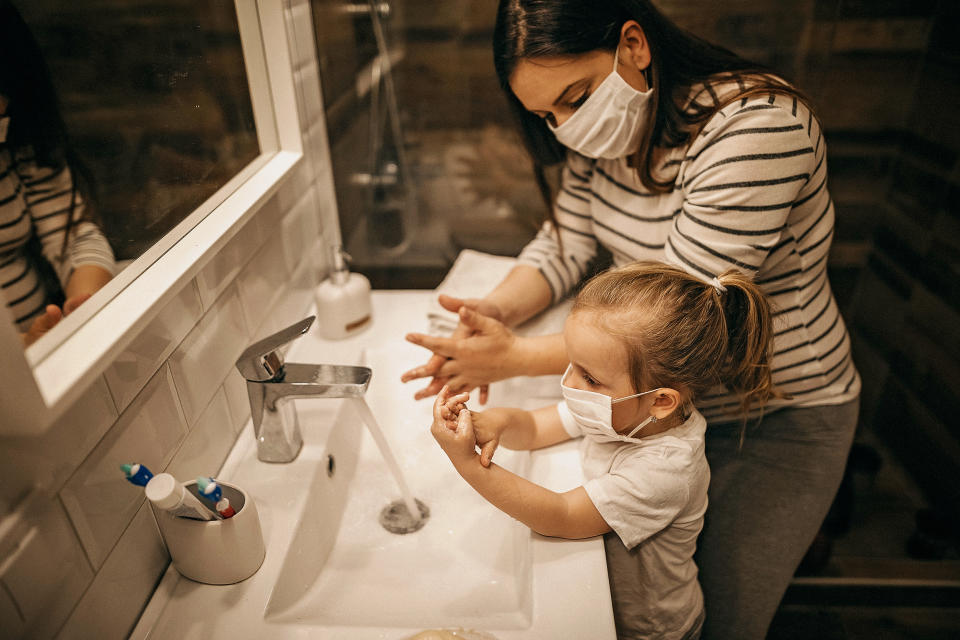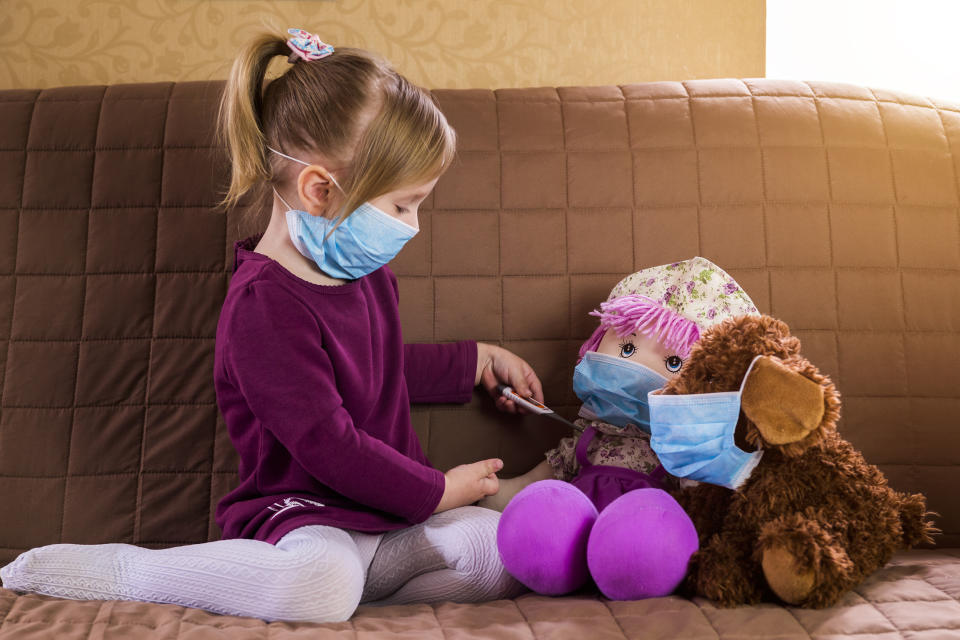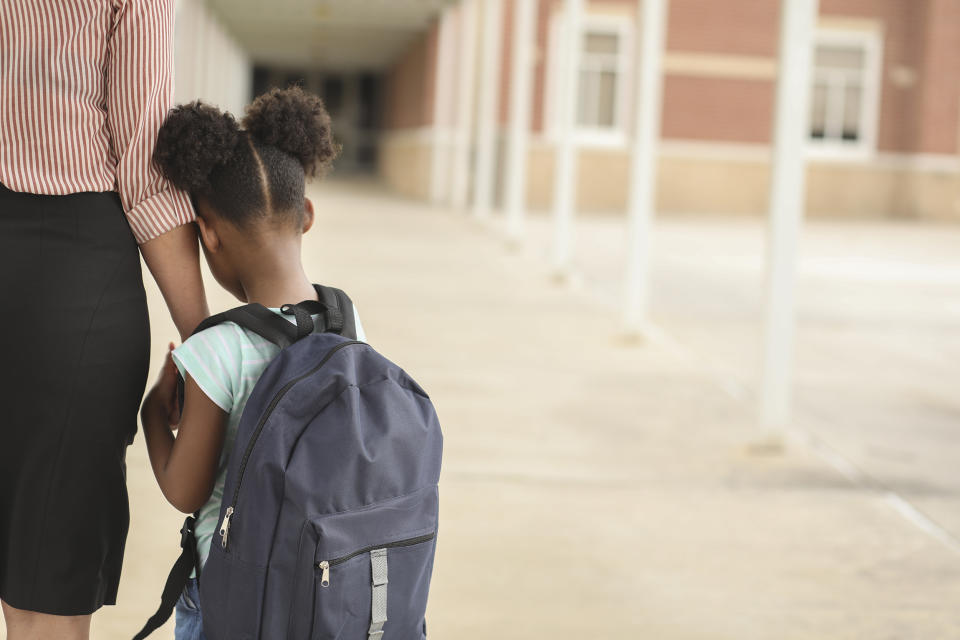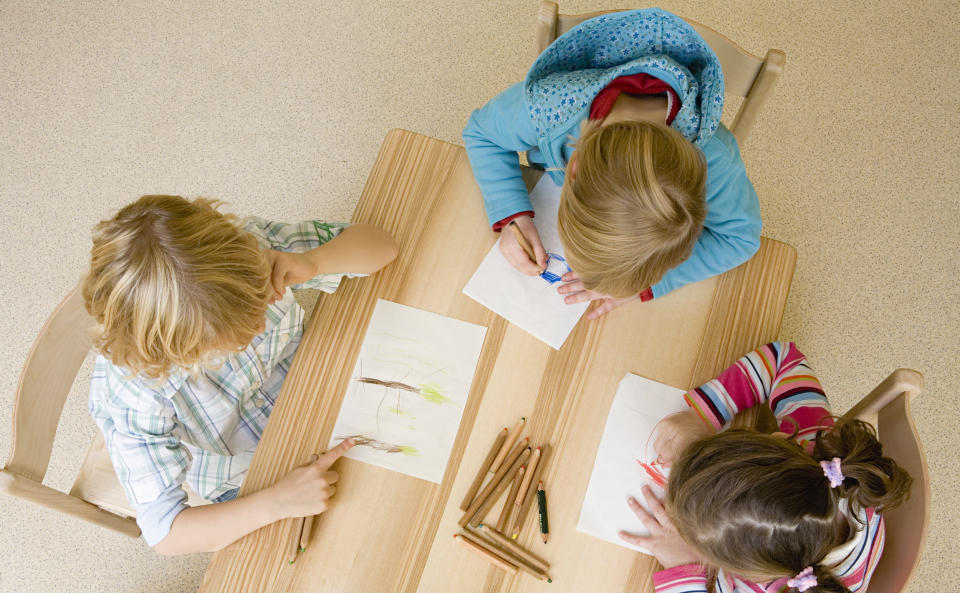Is it safe to send children to daycare? Experts weigh in
As workplaces around the world begin to re-open, many parents have one thought in mind: Is it safe to send their children to daycare?
While research shows that children do not seem to be as susceptible to the virus as adults, a new pediatric multi-symptom inflammatory syndrome has raised alarms, and there are concerns that children could be asymptomatic carriers and spread the virus to adults or compromised populations.

The Centers for Disease Control and Prevention (CDC) have released guidance on the matter. TODAY also spoke to two experts to get answers on what parents need to know about sending their children back to daycare.
Download the TODAY app for for the latest coverage on the coronavirus outbreak.
How can daycares prevent the spread of COVID-19?
One of the main problems at daycares is the difficulty of asking young children to social distance or wear masks. Children under the age of two should not be masked, according to the CDC, and toddlers are unlikely to accept wearing masks for an extended period of time.
"It's not like high-schoolers," said Dr. Saad Omer, the director of the Yale Institute for Global Health and a professor of infectious diseases at the Yale School of Medicine in New Haven, Connecticut. "(Young children) don't comply. They act like little kids because they are little kids. ... There should still be risk mitigation by distancing and all of that, but the concern is about adults that come in to contact with these kids."
To prevent the spread of the virus among children, Omer and other experts emphasize the importance of testing and monitoring staff and other adults who enter the daycare.
"The first line of defense, I think, is actually keeping it out of the staff," said Tara Sell, who is a senior scholar at the Johns Hopkins Center for Health Security and recently published a paper on what further research is necessary to open schools during the COVID-19 pandemic.
Within classes, Sell and Omer recommended that classes be kept as separate as possible, without mingling or shared spaces. They also said that frequent hand washing should be practiced by both children and staff. The CDC guidance recommends washing hands with soap and water, only using hand sanitizer if those are not readily available, and warns that caretakers should carefully monitor hand sanitizer use so that children to do not swallow it.
While there is new research showing that the virus may not last long on surfaces, it's recommended that frequently touched surfaces be disinfected. Toys that cannot be easily disinfected should not be made available.
The CDC guidelines for childcare programs recommend that daycares have a plan in place in case employees become sick. The guidelines also recommend that the daycare have a separate space available for employees or children who may become sick during the course of the day, and be prepared to sanitize the building or facility if someone tests positive for COVID-19.

If a case of COVID-19 is confirmed, the CDC recommends taking the following steps:
Close off areas used by the person who is sick.
Open outside doors and windows to increase air circulation in the areas.
Wait up to 24 hours or as long as possible before you clean or disinfect to allow respiratory droplets to settle before cleaning and disinfecting.
Clean and disinfect all areas used by the person who is sick, such as offices, bathrooms, and common areas.
If more than 7 days have passed since the person who is sick visited or used the facility, additional cleaning and disinfection is not necessary.
What safety measures should parents look for?
Sell said that in addition to parents looking out for standard daycare red flags, they should make sure that the daycare appears to be following COVID-19 precautions and guidelines.
"The first thing I'd be looking for is that staff have the ability to stay at home if they're sick," Sell said, adding that employees should also be able to seek testing and stay at home until those results were returned. "I think the main red flag for me would be if staff seemed to be sick at work, or if it seemed like there was no thought towards sick kids in the daycare."
Omer said that testing would be important to make sure daycares knew if there were any cases of the coronavirus among staff.
"If there is ability to do testing of staff, (daycares should) do that, if they can afford it," Omer said. "Do testing with some frequency at intake, and then again every few weeks."

Sell also added that parents should ask if staff are familiar with standard protocols for sanitation and social distancing.
The CDC also recommends that adults not enter the facility wherever possible, especially during drop-off and pick-up times. If possible, hand hygiene stations should be set up at the entrance of the daycare for children to clean their hands before entering and sign-in stations should be outside, with sanitary wipes available for cleaning pens between each use. If possible, arrival and drop-off times should be staggered.
"I think parents should just use their best judgment, understanding that, you know, we're all sort of thinking through the risks we're taking as we decide to move forward," said Sell. "We don't need to panic about small risks, but we also need to be thoughtful about the risks that we do take. Be aware of what those risks mean to you and your household."
Is there any way to get your deposit back?
Currently, no national legislation requires daycares to return deposits or refund parents if their child has to miss a significant amount of time due to COVID-19 diagnoses.
Several state department websites, including Washington and Florida, state that there are no state-level requirements for refunds.

"State laws do not govern the relationship between child care programs and parents who pay privately. DCYF does not have authority over payments in child care for private pay families. Tuition expectations and policies may be in the child care provider’s parent handbook," says a statement on Washington State Department of Children, Youth, and Families website.
Parents should speak to their daycare directly and consult their contract to see what options are available to them.

